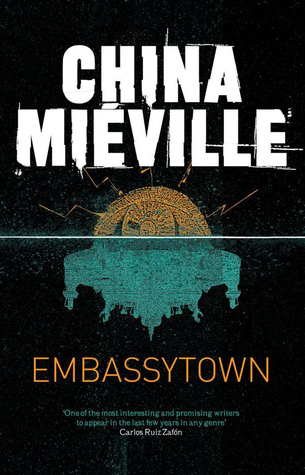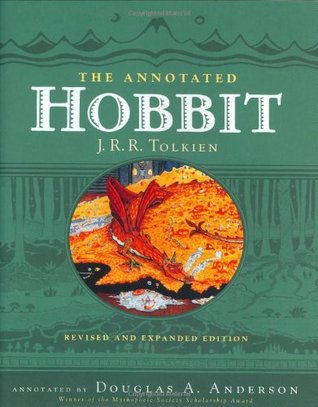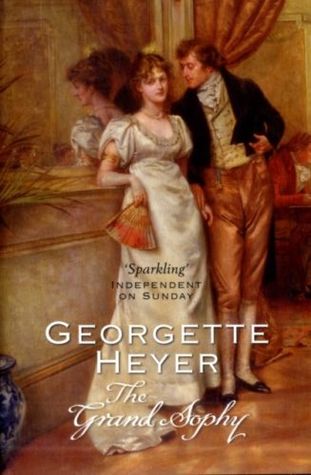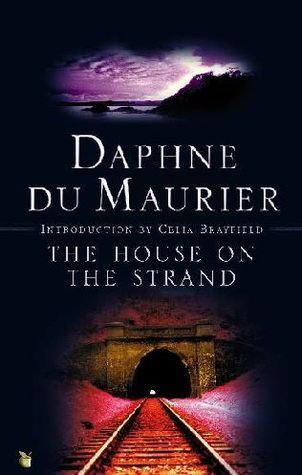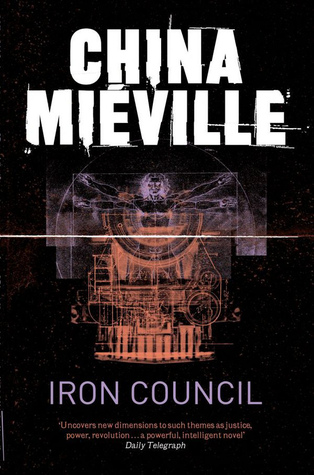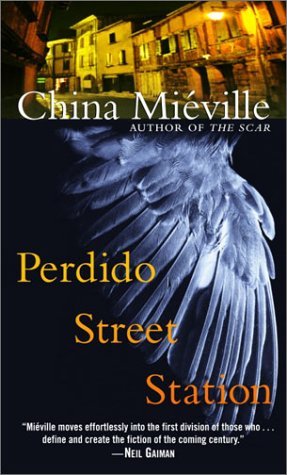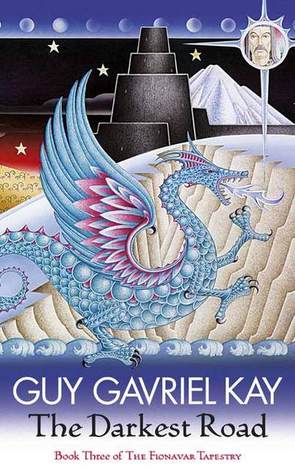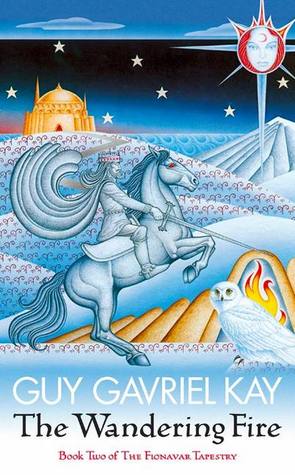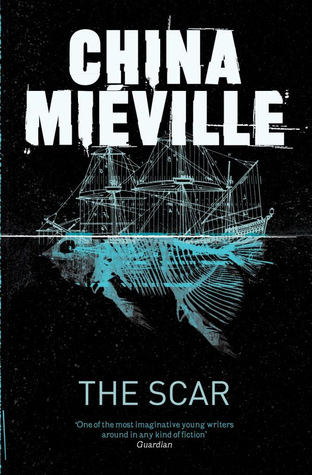 The Scar, China Miéville
The Scar, China Miéville
Originally reviewed 1st May, 2009
I’m glad I was already familiar with China Miéville’s work before I read The Scar. I don’t think I would have appreciated it as much if I hadn’t known, to some extent, what to expect. The Scar is set in the same universe as Perdido Street Station, and has links with it, although it is not set in the same city. The prose is similar, very rich and dense, and the world-building is just as intense. It can be a little hard to get into: I remember with the first book that I found myself wondering what the main plot was going to be because what was there didn’t seem big enough. I was less dubious about The Scar, and wasn’t exactly surprised by the way the plot unfolded and unfolded and got bigger and bigger.
Which isn’t to say I knew where it was going, because while there were some things I expected and some things other people mentioned helped connect some dots, the end was still a shock to me. A good kind of shock, the “oh, that’s what’s going on, now everything suddenly makes sense” kind of shock, but still a shock. It’s hard to articulate what I felt about it because when I got to the end, I sat down to try and talk in a discussion thread about it and couldn’t summon up the words. I loved it, really, the way everything comes together, and the way everyone takes their place in the scheme of things and all the characters’ purposes make sense.
Overall, I loved the descriptions of the city. Miéville is really damn good at building up pictures like that, making you see it vividly, making you know how it works. I think I remarked in my review of Perdido Street Station that the city itself seems like a character, and the plot more like a vehicle to explore it — or if I didn’t, I should’ve. I felt this less in The Scar, but Armada is still a sort of character of its own.
Speaking of characters, The Scar has a lot of interesting ones. I’m really pleased that some Remade, who were more on the outskirts of Perdido Street Station, were closer to the heart of this book. Tanner Sack is an awesome character, I think — not too complicated in his thinking, but good and loyal. His slow transformation to become more of a sea-creature is really, really interesting to read about, and he was one of the few characters I wasn’t ambivalent about. Shekel was another, of course. I ended up liking the Brucolac more than I expected to, given that he’s a vampire and quite scary. Uther Doul is another fascinating character, and it’s amazing how much of a part he plays in the end. I didn’t like Silas at any point, so I was quite unsurprised by what he was doing, but Doul was more of a surprise. There’s a lot of manipulating going on in this book, and it amazes me how intricate it gets while still making sense.
Bellis herself, I didn’t feel much about either way. She’s rather unremarkable, really, except in being at the right (or wrong) place at the right time.
The Lovers were one of my favourite things about the book. The story surrounding them, about the scars, is intense and intriguing, and I was very drawn to the concept. Not so much to the characters, but definitely to the concept. I was actually sad when they parted because they were such a strong symbol.
I feel like I haven’t even managed to touch on the things that fascinate me about this book. It’s rich and dense, the characters are for the most part interesting and powerful. The ending is a wonderful culmination of all the threads, all the little details, and I love it. The world-building is wonderful. One of the things I like best about it is that there isn’t even any attempt to explain their science and make it like our science. It just is, but it’s not magic, it’s still science.
There are some amazing quotes, too. The ones that stuck out to me most are both related to Tanner:
-“A scar is not an injury, Tanner Sack. A scar is a healing. After an injury, a scar is what makes you whole.”
-“In time, in time they tell me, I’ll not feel so bad. I don’t want time to heal me. There’s a reason I’m like this.
I want time to set me ugly and knotted with loss of you, marking me. I won’t smooth you away.
I can’t say goodbye.”
I think those are amazing and lovely, too.
In conclusion, I think The Scar is well worth reading. If you can’t get into it because of all the denseness, persevere. I definitely found it worth it. I liked The Scar better than Perdido Street Station, but that might also have been because I was more prepared for it.
Rating: 5/5
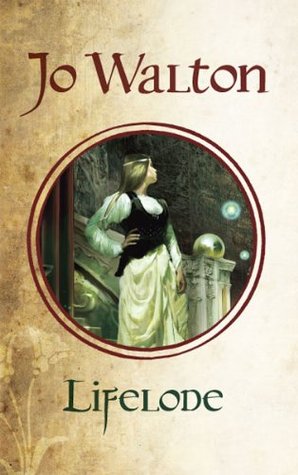 Lifelode, Jo Walton
Lifelode, Jo Walton
